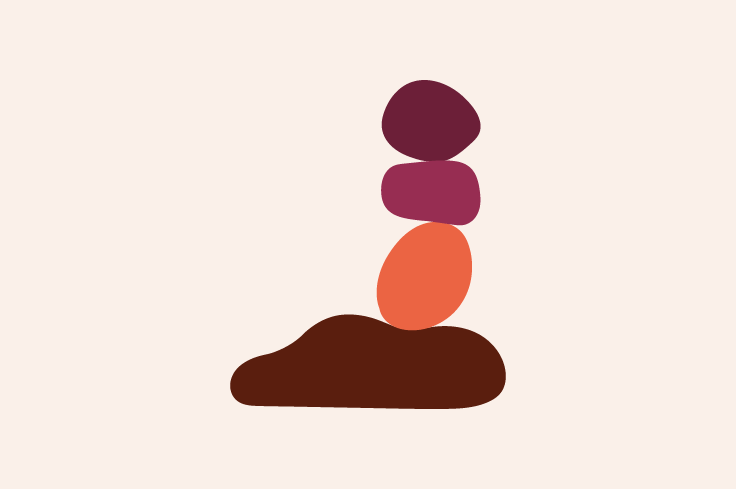Barriers to balance
Why is it so hard to find balance in life? Life itself can contain both major and minor difficulties and trials. In addition to things that we can’t control, there are the decisions that we make ourselves because they feel easiest at the time, but that take our energy. By becoming more aware of what we can do differently and how we can deal with barriers, we can increase our well-being.

Internal emotional barriers
Things we can do differently include setting boundaries, saying yes when we need to and no when we need to. Negative thoughts and feelings can make this difficult. For example, when we say “yes” to something, even though we don’t want to or don´t have time for it, for fear of disappointing someone. Or when we say “no” even though we would like to do something, because we dare not. Even ideas such as “first do all the musts, then I can rest” can hinder our recovery.
- What do you do in everyday life to avoid troublesome thoughts and feelings?
- What would you do differently if you weren’t affected by negative thoughts and feelings?
Click on "An accepting approach" to learn more about how you can manage your emotions.
External barriers
External barriers include study and workloads, financial limitations and physical and mental illness. Some of these we can’t influence even if we want to, while others we can, even though it may feel difficult. We need to deal with these barriers in different ways. What we can’t control is best met with acceptance. The external factors that we can control are best dealt with by problem solving.
- What takes a lot of energy in your life right now?
Categorise by things that you can control and things that you can’t control. - Can you use problem solving for anything?
- What would it mean to have an accepting approach to what you can’t influence – pros and cons?
Click on "Problem solving" to learn more about how you can manage external barriers.
The stress paradox
It’s especially difficult to be able to do recovery activities when we need them most. Partly, it’s harder to prioritise rest and relaxation when it feels like we don’t have time for it. And partly, we get so wound up when we are stressed that sleep can be impaired, and we may feel too restless to take a break. If you recognise yourself in this description, it’s a signal that you need to increase your recovery. You can learn to relax, but it may require conscious practice, and you may need help with how to relate to negative thoughts and feelings that come when you’re not performing well.
Click on “Mindfulness” to learn more about what it is. Click on “Exercises” for information on guided exercises in mindfulness.